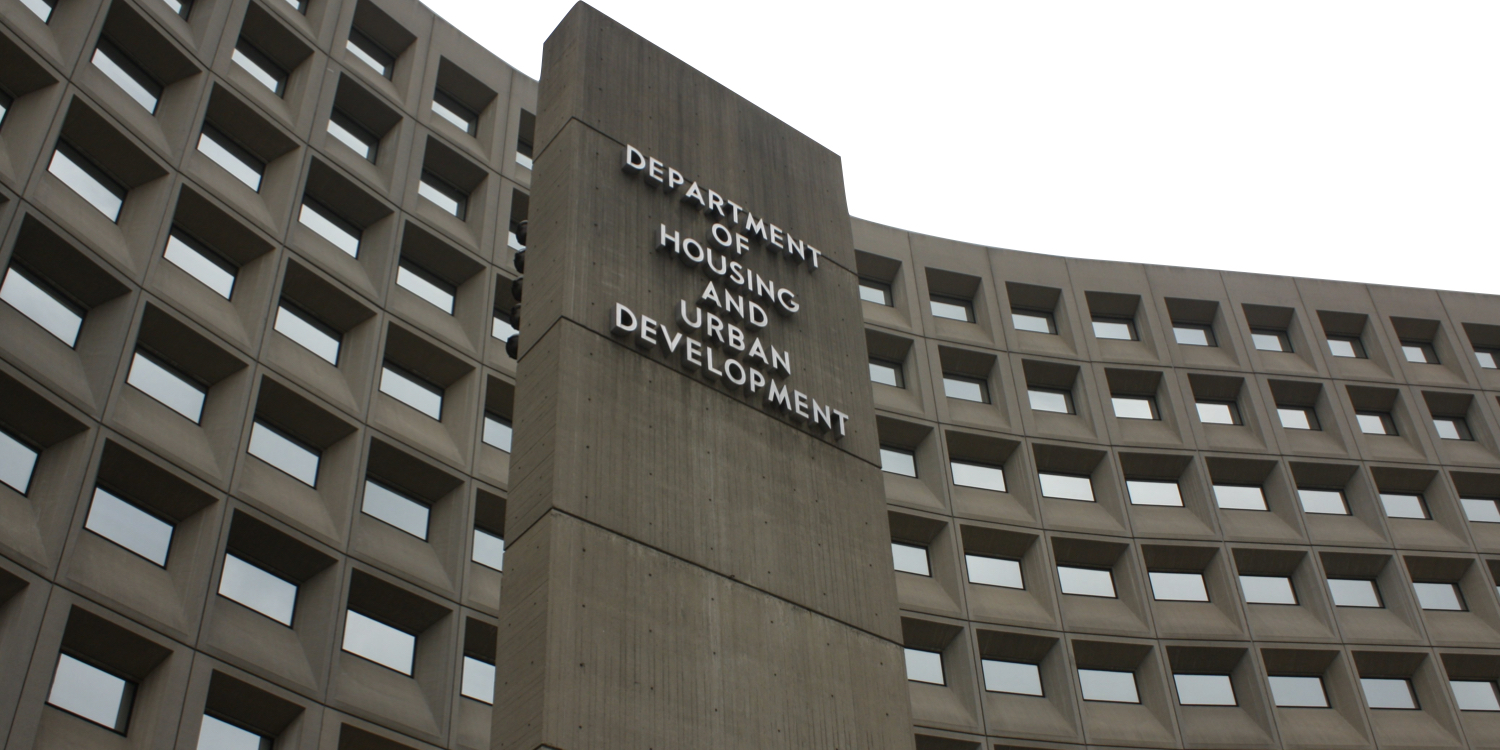HUD has proposed 11 changes to the HECM program- here are the six most notable
Continue readingDespite Improvements a Call for HECM Structural Changes
While the FY 2019 FHA Report shows significant improvement in the HECM program’s value, FHA calls more ‘structural changes’
[Download transcript]
As we gather around the table this Thanksgiving there’s one thing to be grateful for: FHA’s most recent report to Congress showing a showing significant improvement in the federally-insured reverse mortgage’s economic value. This year’s valuation of the program reflects the fluid nature of assigning an economic value to the program being heavily influenced by larger market forces. These disparate valuations have drawn the attention of lawmakers since the HECM was moved to the Federal Housing Administration’s Mutual Mortgage Insurance Fund in 2009.
Beyond the improvements reflected in the report there’s a recurring subtext in the comments coming from the Federal Housing Administration. It is this: now is the time for the industry to expand its private loan offerings and reduce our near-total dependence on the government-backed Home Equity Conversion Mortgage. To paraphrase FHA Commissioner Brian Montgomery’s comments at NRMLA’s annual meeting as reported by Reverse Mortgage Daily ‘FHA must ensure that the HECM market is not overwhelmingly shouldered by the federal government’.
While the HECM’s financial footing may have improved some significant changes lie ahead. “We’ve seen the improvements [in the HECM program] over the past year, and we know that it is not enough, It is not self-sustaining, and while the state of the economy is important to the improvement, the time to fix the roof is when the sun is shining”, said FHA Commissioner Brian Montgomery during his keynote speech at NRMLA’s annual meeting in Nashville.
There may be reason to give thanks
A year to give thanks for?
Thanksgiving is the season to reflect upon the blessings bestowed upon us. In recent years continuing that tradition has been a challenge for reverse mortgage originators and lenders alike as we faced numerous policy changes that significantly reduced originations, marketing budgets, and ultimately the number of Home Equity Conversion Mortgages endorsed. However, this year we may have reason to celebrate.
As claims from federally-insured reverse mortgages surged the common response from HUD was to (1) reduce principal limit factors, or (2) adjust FHA insurance premiums. Often these were referred to as the ‘levers’ the agency pulled to reduce the risk of future insurance claims. Last September we saw a significant departure from this historical response with HUD choosing to forgo PLF reductions in favor of the Collateral Risk Assessment which requires a second appraisal when FHA’s automated valuation model reflects an inflated value. While not embraced by most industry participants it was less severe than the alternatives.
Now we anxiously await the actuarial report on the Federal Housing Administration’s Mutual Mortgage Insurance Fund- more specifically the HECM claims paid last year and the projected economic value of the program.
There are two reasons one could be cautiously optimistic.
First, the HECM’s economic performance is especially sensitive to present and projected interest rates. The Federal Reserve’s announcement of planned rate cuts could significantly improve the economic valuation and outlook for the HECM.
Second, the most exacting reforms recommended by HUD Secretary Ben Carson require Congressional approval. Those include the removal of the HECM from FHA’s insurance fund and the elimination of a national lending limit. With the House of Representatives being fully engrossed in the ongoing impeachment investigation and the meager 8 days the lower house is scheduled to work in November, legislative changes are unlikely in the near future.
All which leaves us with potential administrative changes, one in particular that Secretary Carson has touted repeatedly- the elimination of HECM-to-HECM refinances. To date, no mortgagee letter has been announced to effect such a change. However, should the pending actuarial report reveal a worsening economic forecast HUD could offer the refinance moratorium as proof of their earnestness in addressing financial risks. Until then many are anxious to see previously-announced improvements in how HUD’s contracted servicers dispose of HECM properties that are no longer occupied by a borrower due to death or relocation, and the verification that an eligible borrower or spouse remain in the property.
All things considered, we have much to be grateful for.
Researchers present HECM fixes last week
How do you fix the reverse mortgage and expand its availability? Researchers presented their ideas last week
There’s no shortage of ideas when it comes to just how to strengthen the federally-insured reverse mortgage and expand its reach to older homeowners. Last Monday, the Brookings Institution hosted a symposium entitled “Reverse mortgages: Promise, problems, and proposals for a better market”. Participants included AARP’s Debra Whitman, Stephanie Moulton of Ohio State University, University of British Columbia professor Thomas Davidoff, Longbridge CEO Chris Mayer, and Laurie Goodman from the Urban Institute. The event is part of the Brookings Institution & the Kellogg School’s meetings on retirement security. These are not pending proposals for the Home Equity Conversion mortgage, nor are they being debated by lawmakers. However, these policy think tanks play an important role in our federal government and help shape public policy.
Politics, Gridlock & CFPB Enforcement
Political gridlock, proposed changes & CFPB finding on HECM APRs
We’re in the full swing of the political season as the 2020 presidential race is underway. In a recent LGBTQ Town Hall hosted by CNN on October 10th, former HUD Secretary Julian Castro called out the agency’s head Ben Carson for his remarks during an internal meeting while visiting HUD’s San Francisco office.
The Washington Post reported in September “Carson also lamented that society no longer seemed to know the difference between men and women, two of the agency staffers said”. During the LGBTQ Town Hall candidate, Castro said, “The comments that Secretary Carson, my successor, made a couple of weeks ago are shameful. When you’re housing secretary, you’re there to serve everybody. And his comments made clear that he’s not able to serve everybody”. A HUD spokesperson denied the use of any derogatory language. It’s reported that Carson plans to leave HUD after the 2020 presidential election to return to the private sector should Trump be reelected.
And in other news, distraction and gridlock in the nation’s capital may be a good thing- at least when it comes to proposed additional changes to the federally-insured reverse mortgage. Two changes that remain unsettled are the return to geographic or county lending limits instead of the current national lending limit, and the removal of the HECM from FHA’s Mutual Mortgage Insurance Fund. Both reforms were promoted in the Trump Administration’s Housing Finance Reform plan released earlier this year in March.
In his prepared written statement for last month’s hearing on the HECM NRMLA President & CEO Peter Bell wrote, “Area-by-area’ loan limits penalize homeowners who have improved and maintained their homes over the years and have accumulated more equity as a result of higher home values. Applying the forward mortgage concept of ‘area limits’ to a financial resource (HECMs) created for a completely different population at a completely different time of their life would be ill-advised”.
Despite Scrutiny Some Changes Could Boost HECM Credibility
Recently recommended servicing reforms may boost HECM image

It’s a fact every salesperson and reverse mortgage professional must embrace- the vast majority of consumers inherently distrust salespeople. Will recent HECM changes help bolster the product’s legitimacy in the public eye?
The irony is that every major purchase from buying a home, a car or investing in your retirement entails working with a sales professional. The same applies to reverse mortgage professionals who approach a distrustful public. Further compounding this general skepticism are products whose unique features are highly advantageous leading many to say ‘if it sounds too good to be true, it probably is’. The good news is that recent changes to the federally-insured reverse mortgage may have helped us close the credibility gap.
One problem that has garnered the most press and Congressional ire are HECM ‘foreclosures’. While the vast majority of HECM foreclosures are the result of the last borrower passing away thus terminating the loan, many could have been avoided with better communication and outreach. At least that’s the consensus among lawmakers- some who are pushing for increased scrutiny of the servicing process- more specifically how those who are overdue on their property taxes are managed. Are they sent a reminder before their property taxes are due? Are HECM borrowers who are delinquent on their property tax installment notified of any available local and state tax-deferral programs? Lawmakers are pushing for reforms to help avoid the fiasco that we call a ‘technical default’.
For a summary of last week’s Congressional hearing click here.
HECM & Housing Finance Reforms
A summary of recommended HECM changes
In a statement issued last week we learned that the Department of Housing and Urban Development (HUD) in cooperation with the Treasury Department presented President Donald Trump with their plans for reforming the Nation’s housing finance system and the Home Equity Conversion Mortgage program.
To date, no hard deadlines have been announced for implementation of any specific recommendations included in the report. Administrative reforms can be enacted by the Department of Housing and Urban Development. Legislative reforms require the approval of Congress which is more problematic and unpredictable.
While we have focused primarily on the Home Equity Conversion Mortgage, the report recommends reforms for several facets of housing finance that fall under the supervision of the Federal Housing Administration.
Here is a summary of the recommended changes to the Home Equity Conversion Mortgage program as part of housing finance reform.

BREAKING: Major HECM Changes Announced
HECM-to-HECM Refis Targeted, Appraisal Scrutiny & More
Late last Thursday afternoon we received word that the Department of Housing and Urban Development (HUD) in cooperation with the Treasury Department presented President Donald Trump with their plan for reforming the Nation’s housing finance system and the Home Equity Conversion Mortgage program. This was in response to President Trump’s March 2019 memorandum for housing finance reform.
First the good news- there are no indications of further HECM principal limit factor (PLF) reductions or dropping the current interest rate floor. Second- you may want to watch the current national lending limit for federally-insured reverse mortgages. HUD is recommending Congressional approval to…
“One of the biggest drivers of losses in the HECM”
The Urban Institute calls for loan servicing reform
Despite the good news last month that the backlog of HECM assignments has been cleared, significant problems remain according to the Urban Institute. “Rather than continuing to narrow eligibility—and decreasing participation further—the FHA should focus on reducing costs. Addressing losses on assigned loans would be the best step in that direction. This servicing issue is one of the biggest drivers of losses in the HECM program.” So begins the Urban Institute’s recent blog post on how FHA could more effectively stem the tide of continuing HECM claims against its insurance fund.
Much like a broken pipe dramatically reduces the reach of other sprinklers in the system, HECM borrower participation, and overall loan volume have been decimated in the wake of several cutbacks to the program in efforts to stem continued losses. The trick is finding where the leak is. Evidently, numerous reductions to the amount of money loaned (PLF factors), the financial assessment, and first-year distribution restrictions have not had their anticipated effect as projected losses continue according to HUD’s annual actuarial reports.
All which leads us to the question where’s the proverbial leak? Nearly one year ago FHA Commissioner Brian Montgomery said of HECM losses, “My sense is that it’s more on the back end in terms of the losses we are experiencing. Part of ‘triaging’ is [determining] why that is happening.”
The Senate Appropriations Committee seems to agree to instruct HUD to improve its resolution of defaulted and foreclosed FHA Home Equity Conversion Mortgage loans that have been assigned to HUD. Today 60 percent of HECM loans are not assigned to the agency. This is often due to tax delinquencies, pending foreclosures, or bankruptcies. Of the 40% of loans ultimately assigned to HUD 42% incur losses or result in an insurance claim, while only 12% for loans still with the loan servicer result in a loss. Consequently, the Urban Institute recommends that FHA’s policies be changed to allow the current servicer to manage the loan even after the loan is assigned.
HUD’s losses may be higher because they are required to pay future delinquent property taxes after the loan has been assigned. However, before a loan servicer can assign the loan property taxes must be current. In some cases, the servicer may pay the current outstanding taxes anticipating future delinquencies, and assign the loan at that time.
For most HECM professionals loan servicing goes largely unnoticed. However, the importance of effective and efficient loan servicing cannot be overstated when it comes to the verification of tax payments, borrower occupancy, and property maintenance. There have been numerous anecdotal reports of HECM properties no longer being occupied by renters or family members long after the borrower has moved or passed away. In other instances, properties are not effectively supervised and become dilapidated decreasing the value of the loan’s underlying security- the home.
Contrary to the Congressional Budget Office’s recent recommendation to assign loans much earlier at 80% of the maximum claim amount versus 98%, the Urban Institute points to a potential source of a significant number of HECM insurance claims. Would this approach fix the leak and once again place the HECM closer in reach for those who could benefit?
Urban’s blog post concludes by stating, “If the FHA were to allow existing servicers to retain the servicing for the rest of the life of the loan, it would stem these unnecessary losses. This is critical to the future viability of this valuable program for seniors.”
BREAKING: The CBO proposes 4 major HECM changes
Despite improved HECM outlook, the CBO recommends four major changes to the reverse mortgage program
In August 2016 AARP recommended the elimination of the HECM ‘line of credit’
While FHA recent reports show a positive financial outlook for the fiscal year 2020, the CBO issued a report today proposing 4 major potential reforms to the HECM to reduce long term risks to the taxpayers. The Congressional Budget Office provides budget and economic data to Congress or the legislative branch which sets their priorities. In essence, they are the watchdog for the nation’s purse.
1-Make FHA a direct lender. Under this proposal, lenders would do the leg work or marketing and originating the loan, while FHA would make the disbursements directly to the homeowner. In addition, the government would service the loans. The CBO acknowledges significant drawbacks in scaling to manage a large number of loans…






